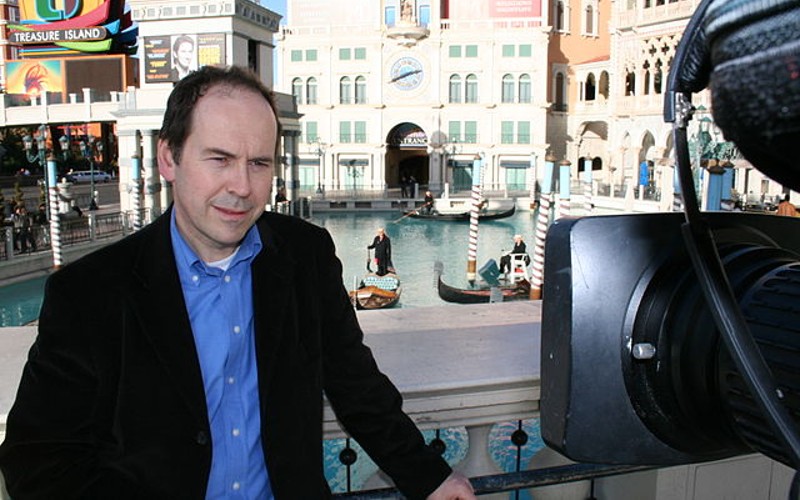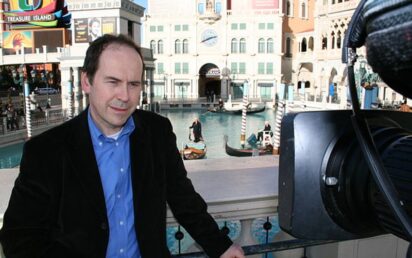BBC veteran Rory Cellan-Jones has been recognised by The National Museum of Computing for his services to technology education.
Cellan-Jones, set to leave the BBC next month after 40 years to pursue new ventures, has been awarded an honorary fellowship of the museum by the independent charity.
The technology journalist, who was widely praised for his openness when he was diagnosed with early Parkinson’s disease in 2019, has spent his entire journalistic career at the BBC.
He started there as a researcher, reported on business and economics then moved into technology, giving him a front row seat to the most pressing tech news for more than 40 years.
He was pivotal to the Corporation’s reporting of stories from the dotcom crash to the rise of online retailing, the cultural impact of the internet and more recently the impact the COVID-19 pandemic has had on the tech industry.
https://businesscloud.co.uk/dad-seems-like-his-old-self-thanks-to-smart-cup/
The fellowship recognises outstanding contributions towards the history and ongoing development of computing, with Cellan-Jones receiving the honour as a result of his significant and quality contribution to advancing public knowledge and understanding of its history, culture, science, technology and practice.
With no formal background in technology, Cellan-Jones is described by the BBC as ‘the non-geek’s geek’ due to his ability to communicate the biggest technology stories to a non-specialist audience in an engaging way. He is also a published author, with his first book ‘Dot.Bomb’, which was originally published in 2001 telling the story of how the dot com tide swept over Britain and what was left when it receded.
Earlier this year, he published his second book, ‘Always On: Hope and Fear in the Social Smartphone Era’ which Stephen Fry reviewed as a “delightfully insightful and intensely readable history combining the personal with the objective.”
TNMOC recognises the significant contribution this book has had in charting recent computer history, from the launch of the revolutionary Apple iPhone in 2007, through the rise of social media and the technology giants, to today’s dependence on smart devices.
As a long-term advocate for a greater focus on technology education, Cellan-Jones also donates his time to ‘Speakers for Schools’, a charity which aims to end educational inequality to young people through providing talks from today’s most influential figures.
As part of this programme, Cellan-Jones is known for his engaging talks on modern computing issues such as security and fake news, while also engaging with students over the pros and cons of gaming consoles and showcasing innovative technologies.
“It’s an honour to receive this fellowship and I’m incredibly grateful to have even been considered,” said Cellan-Jones.
“I have long admired the work that The National Museum of Computing does and look forward to helping communicate the importance of its collection and its educational mission.”
The Museum’s director, Jacqui Garrad, added: “Rory Cellan-Jones’ understanding of the biggest tech issues in today’s world, his expertise on computing, and his work around engaging school children’s curiosity and ambition in the world of technology make him the perfect honorary fellow for The National Museum of Computing.
“We’re thrilled to have his expertise onboard and look forward to expanding our educational programmes with his help.”


